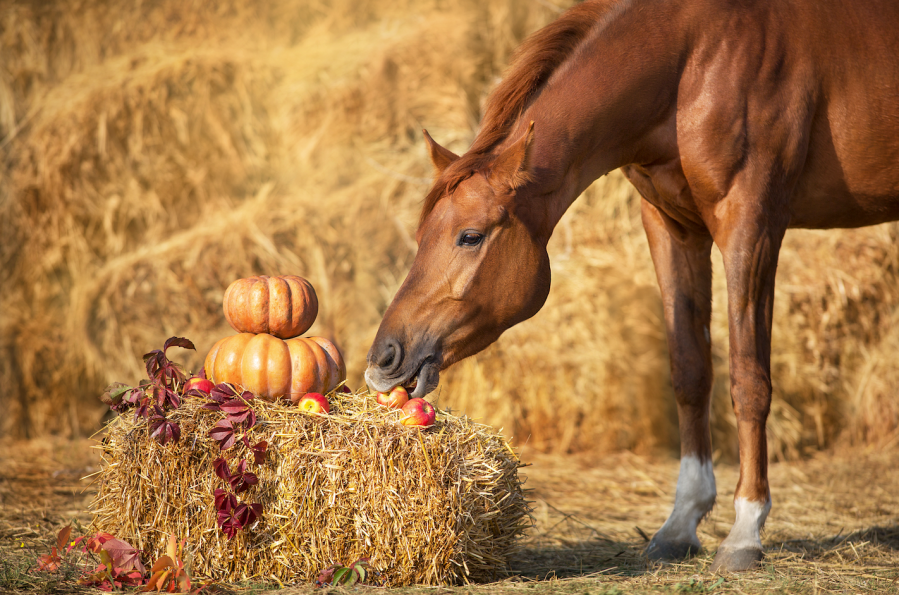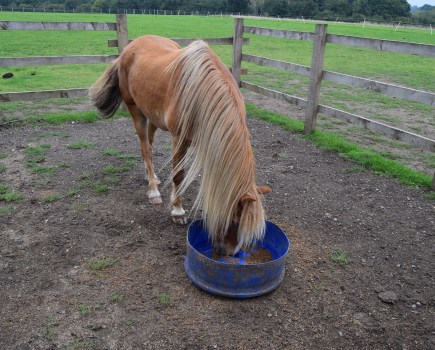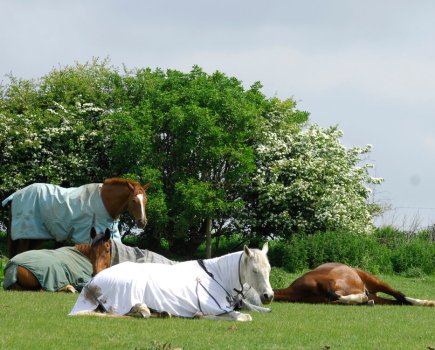Halloween season is upon us and pumpkins are in abundance, but they aren’t typically considered to be a part of a horse’s diet. Can horses eat pumpkins? According to independent nutritionist Fiona Watkins, the short answer is yes, orange pumpkins are safe to feed to horses, including the seeds — “but that’s not to say that all squashes and pumpkins are suitable for horses to eat”.
“An orange pumpkin is low in calories and also has a low glycemic load, meaning that when metabolised, it will not cause a rapid increase in blood glucose, especially when eaten in small quantities. This makes it a safe choice for horses with clinical nutritional diseases, such as laminitis or equine metabolic syndrome,” explains Fiona.
“In addition, pumpkin seeds are reported to have many health benefits. According to human-focused scientific research, they may have a positive impact on nitric oxide levels. Nitric oxide is an important cellular signalling compound, and a powerful vasodilator.”
As always, it’s important to carefully incorporate new feeds into a horse’s diet so as not to upset their gastrointestinal system and cause problems such as colic.
“As with any new ingredient into an equine ration, it is best to introduce pumpkin slowly and gradually,” advises Fiona. “Remember to feed it in small amounts and cut into appropriate pieces — preferably sliced or cubed.
“Alternatively, you could cook the pumpkin and use the softened flesh to make ‘homemade’ horse treats. For example, the cooked pumpkin could be combined with oats and a little bit of cinnamon. However, oats are not suitable for equine with clinical nutritional diseases, such as laminitis or equine metabolic syndrome.”
Do not feed pumpkins which have been carved and left out, or had candles inside.
Seasonal snacks and treats for horses
Other fruits growing in the hedgerows around this time of year include blackberries and rosehips.
“Blackberries are high in a number of micronutrients, namely vitamin C, vitamin E and vitamin K,” says Fiona, which makes them a safe snack for horses to enjoy. “Rosehips also make a great snack — they are super high in vitamin C and powerful antioxidants.”
Another vegetable that is available around this time of year is celery.
“It’s a less common vegetable snack for horses, but celery is high in vitamin A which aids eyesight and helps to keep skin healthy,” says Fiona. “In addition, it’s a natural hydration agent for horses as it is full of water and super low in calories.”
Never feed these foods to horses
There are other fruits and vegetables that, while safe for humans to eat, can cause serious health concerns in horses, ranging from colic and organ damage and even death in some cases. There is a long list of foodstuffs that horses can’t eat due to a number of reasons. Fiona warns about the risks of the most common ones below:
1 Tomatoes
“As a member of the toxic Solanaceae plant family, tomatoes are related to deadly nightshade, horse nettle and other toxic plants, all of which contain tropane alkaloids. The leafy green parts of the tomato plant contain atropine, which slows gut function and can cause colic,” explains Fiona. “The tomato fruit itself contains hyoscyamine, which increases heart rate, decreases saliva production and intestinal motility, and causes severe constipation and/or diarrhoea in horses that can be potentially life-threatening.”
2 Onions and garlic
“Along with leeks, shallots and chives, onions and garlic are members of the Allium family, which if ingested are toxic to horses,” states Fiona. “This plant family contains the chemical N-propyl disulfide, which damages red blood cells, and in turn can lead to anaemia.”
3 Rhubarb
“Due to the high levels of calcium oxalates contained in rhubarb, it is toxic to horses, as well as many other animals,” says Fiona. “Ingesting rhubarb can cause tremors, and if consumed in higher quantities, can damage their digestive and urinary systems, leading to potential kidney failure.”
4 Potatoes
“As another member of the toxic Solanaceae plant family, you should not feed potatoes to your horse, especially raw, but all forms of potato should be avoided,” warns Fiona. “Green or rotten potatoes pose the biggest risk as their chemical composition can cause toxicosis (poisoning). Plus, if eaten whole, a potato is a major choking hazard.”
5 Cabbage, broccoli and cauliflower
“As members of the cruciferous family, these foods all contain a type of sugar called raffinose, which causes intestinal gas,” explains Fiona. “While a bit of gas is no major problem for us as humans, horses can suffer from severe abdominal pains caused by gas-related colic. In serious cases, overconsumption of these vegetables could be fatal.”
6 Avocado
“Every part of the avocado fruit and tree is poisonous to horses, including the skin, stone, leaves and tree bark,” says Fiona. “Consumption can cause a very irregular heartbeat, along with restricted breathing, colic, and in serious cases, death.”
Fiona Watkins BSc (Hons), Pro. Dip., is a fully-qualified independent equine nutritionist. She has a concise working and practical knowledge of all aspects of equine nutrition together with real-life experience from a client base of over five hundred equines. Visit www.thehorsenutritionist.co.uk
Main image © Shutterstock








